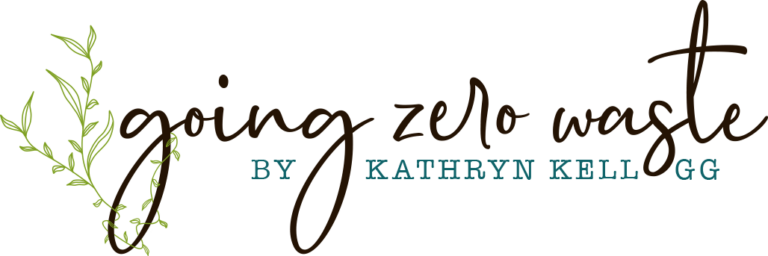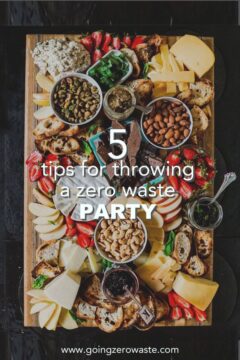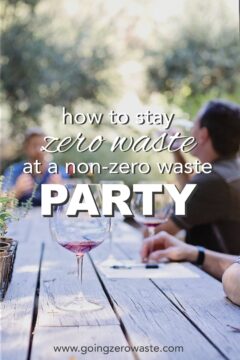13 Sustainable Alcohol Brands to Try at Your Next Party
Zero Waste Parties
April 16, 2024 | Kathryn Kellogg
Last Updated on April 22, 2024
I love entertaining and throwing parties. In fact, I was hosting dinner parties for my friends in high school. During my senior year in high school, my final project in speech class was about tablescaping.
I love making food, drinks, inviting over friends and family – there’s just nothing better.
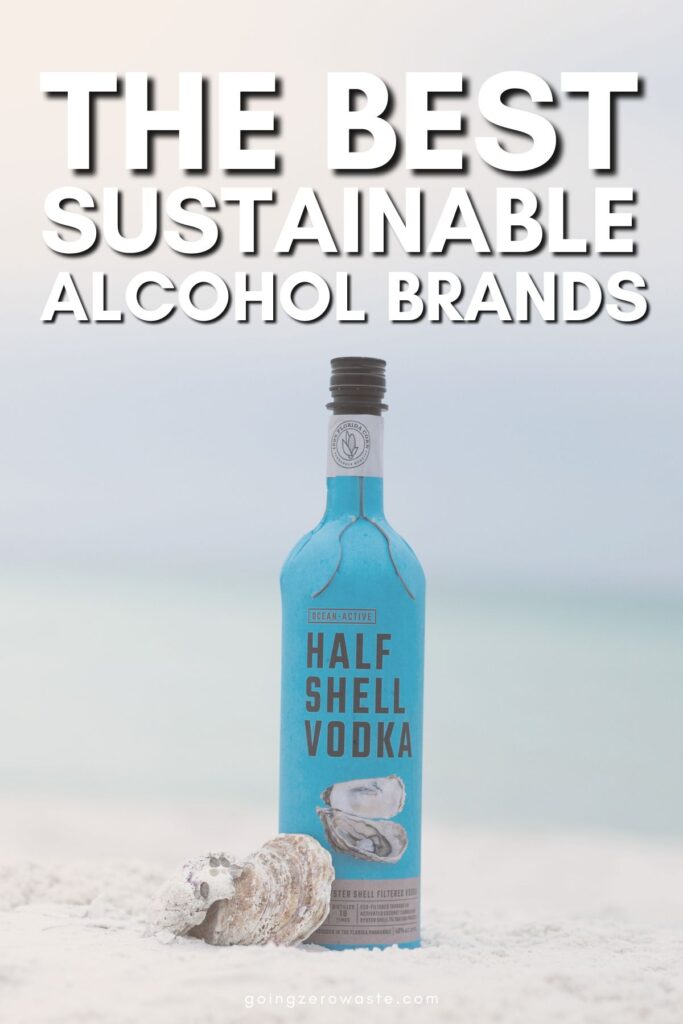
This post was sponsored. All thoughts and opinions are my own; for more information please see my disclosure policy. Some of the links in this post are affiliate links; for more information please see my disclosure policy.
Creating signature cocktails for events is one of my favorite things to do. I recently hosted a prom-themed birthday party for one of my friends and created a signature cocktail called the Prom Queen which was a huge hit! (recipe later in the post)
I think fun drinks are a huge part of get-togethers and events, and I’m not just speaking from experience.
In 2022 alone sales of alcoholic beverages hit $259.8 billion U.S. dollars. This made me wonder, what exactly is alcohol’s environmental impact?
Everything that is produced, transported, and sold has some kind of impact on the planet. Be it haircare, the meal on your plate, or even your alcohol – it all has an impact on our planet’s finite resources.
The biggest impact for alcohol comes from the production process itself: It takes large amounts of water and fertilizer to grow and harvest the grain, grapes, rice, potatoes, and botanicals used in alcohol. Plus, the harvesting and processing of these ingredients uses up resources.
While Justin and I aren’t big drinkers, I do like to have a nice drink or two on special occasions. That’s why I’m glad there are sustainable alcohol brands to choose from that try to lessen their environmental impact.
Here are the best eco-friendly and sustainable alcohol brands on the market. If you like to host parties, or indulge in the occasional cocktail, there’s something for everyone on this list.
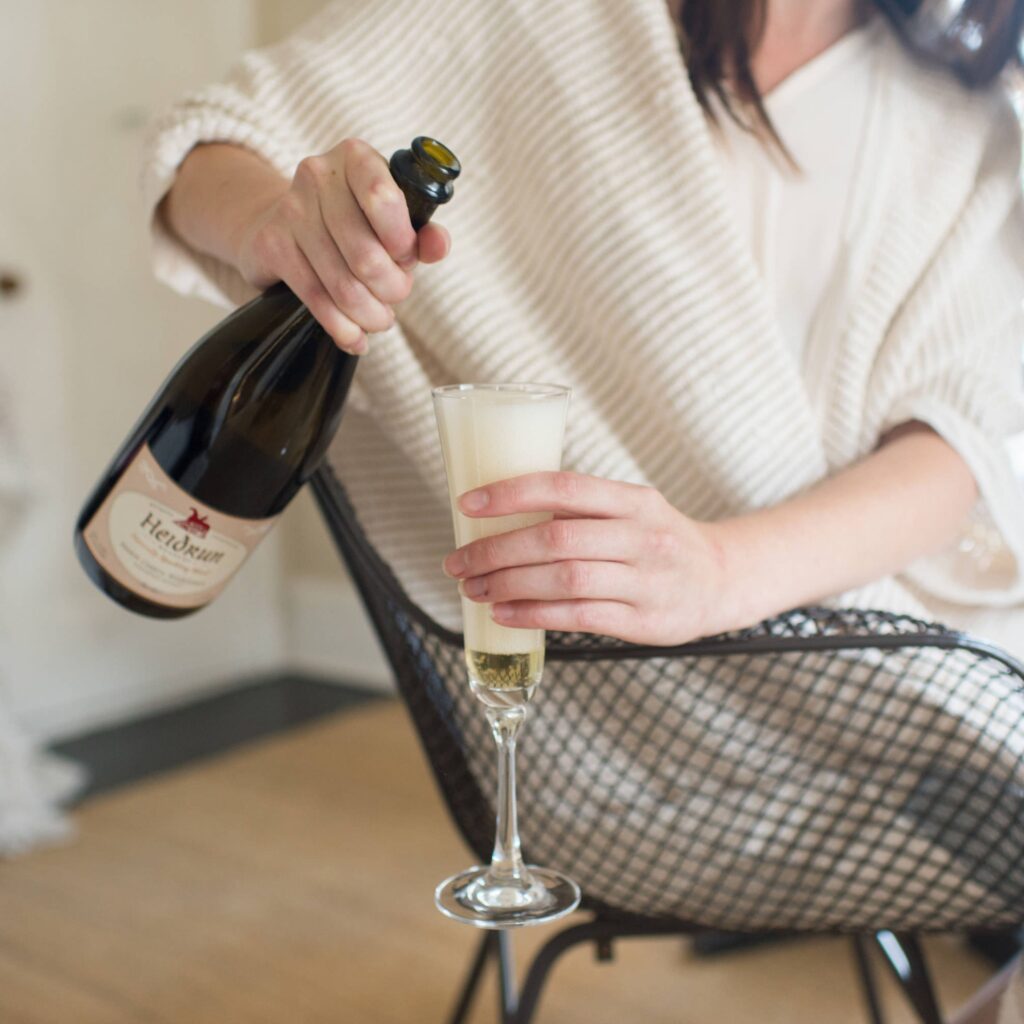
Table of Contents
what is the most sustainable alcohol?
The most sustainable alcohol you can drink uses both ethical and sustainably sourced ingredients, alongside mindful packaging.
Choosing certified organic alcohol is a great option, though not many brands offer this. Michelob Ultra’s organic hard seltzers are one of the few I know about.
Certified organic alcohol ensures products must contain at least 95 percent organically produced ingredients (more on this later).
But there are many other factors to consider when purchasing sustainable alcohol, such as the ingredients, how they were grown and processed, what the packaging looks like, and transportation emissions of said goods.
For example, using lighter packaging like aluminum cans over heavy glass containers can reduce transportation emissions. Or, choosing a locally brewed beer with local ingredients over an international one that was shipped in via air freight has less travel emissions.
In other words, looking for certified organic alcohol is not the only telltale sign of a sustainable alcohol. Instead, looking into alcohol brands that implement eco-friendly practices is a good starting point.
This can mean using sourcing ingredients responsibly, using renewable energy sources, reducing water waste, curbing CO2 emissions, using biodegradable packaging materials, etc.
Here are some qualities to look for in a sustainable alcohol brand:
- Locally sourced ingredients
- Ingredients grown without pesticides and herbicides
- Fair trade and ethical labor practices
- Easy to recycle or innovative packaging
- Innovative water waste reduction practices
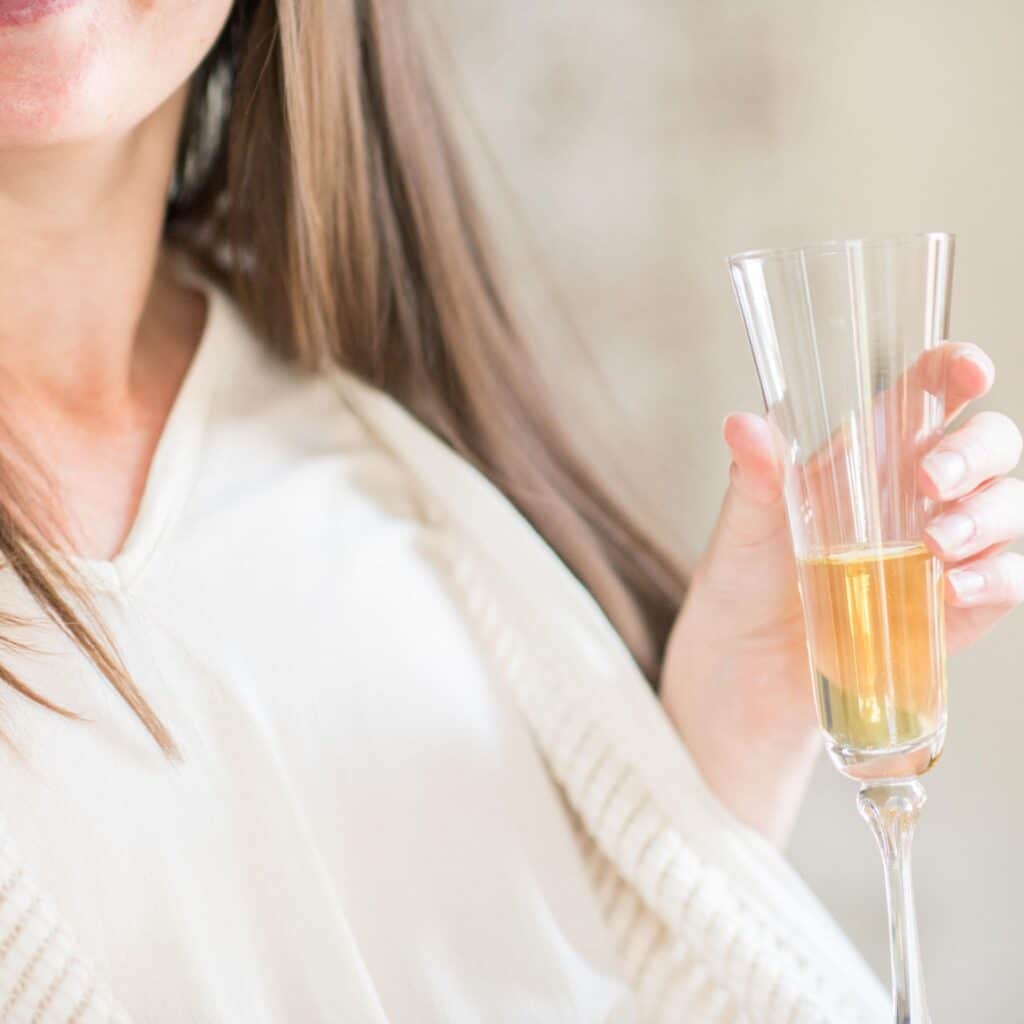
how can we make alcohol more sustainable?
To make alcohol more sustainable, let’s start by discussing how it’s made.
Alcohol is generally made by putting grains, fruits or vegetables through a process of fermentation. Yeast or bacteria react with the sugars in the other ingredients to produce ethanol (the alcohol in the drink) and carbon dioxide (which can mean the drink bubbles).
Wine and cider are made by fermenting fruit, while beer and spirits are made from fermented cereals such as barley and rye.
Spirits also go through a process called distillation, where a portion of the water is removed, leaving a stronger concentration of alcohol.
However, to create alcohol, usually monocultures (growing just one crop) will be used which harms biodiversity, and soil health. These crops tend to be sprayed with pesticides, fertilizers, and herbicides, all of which contaminate the soil and groundwater.
Ironically, one of the most impactful parts of alcohol production though is the distillation. The water removed from the alcohol to make spirits (aka, higher alcohol content) is often wasted.
For example, the water wasted making tequila creates a highly acidic pulp, called vinazas, which befouls the soil and groundwater in Mexico’s Jailsco region.
As a general rule of thumb, the higher the alcohol content, the higher the carbon footprint. A standard 750ml bottle of alcohol is said to produce around 6.5 pounds of carbon dioxide.
Understanding this, we can make the production of alcohol more sustainable by supporting brands that utilize organic farming and embrace holistic agricultural practices.
So for example, a vineyard that grows grapes for wine can be more sustainable by growing organic grapes, not using pesticides, and finding innovative ways to reduce water waste.
It’s a good idea to intentionally look for brands that prioritize soil health, biodiversity, and overall ecosystem resilience with their farming methods.
We can also support local breweries, wineries, distilleries, and alcohol made in smaller batches.
Here are a few other ways we can sip sustainably:
- Use public transportation to and from the bar, or carpool with a sober designated driver.
- Recycle (or upcycle) all the cans and bottles you accumulate. Ex: You can reuse wine bottles as water pitchers or flower vases!
- Consider buying refillable options such as growlers at breweries or refillable carafes at vineyards.
- Try to say no to single-use plastic cups by bringing your own cup (a collapsible/portable Stojo cup would fit in most purses). Or, ask your host for a real cup and offer to wash it after using it.
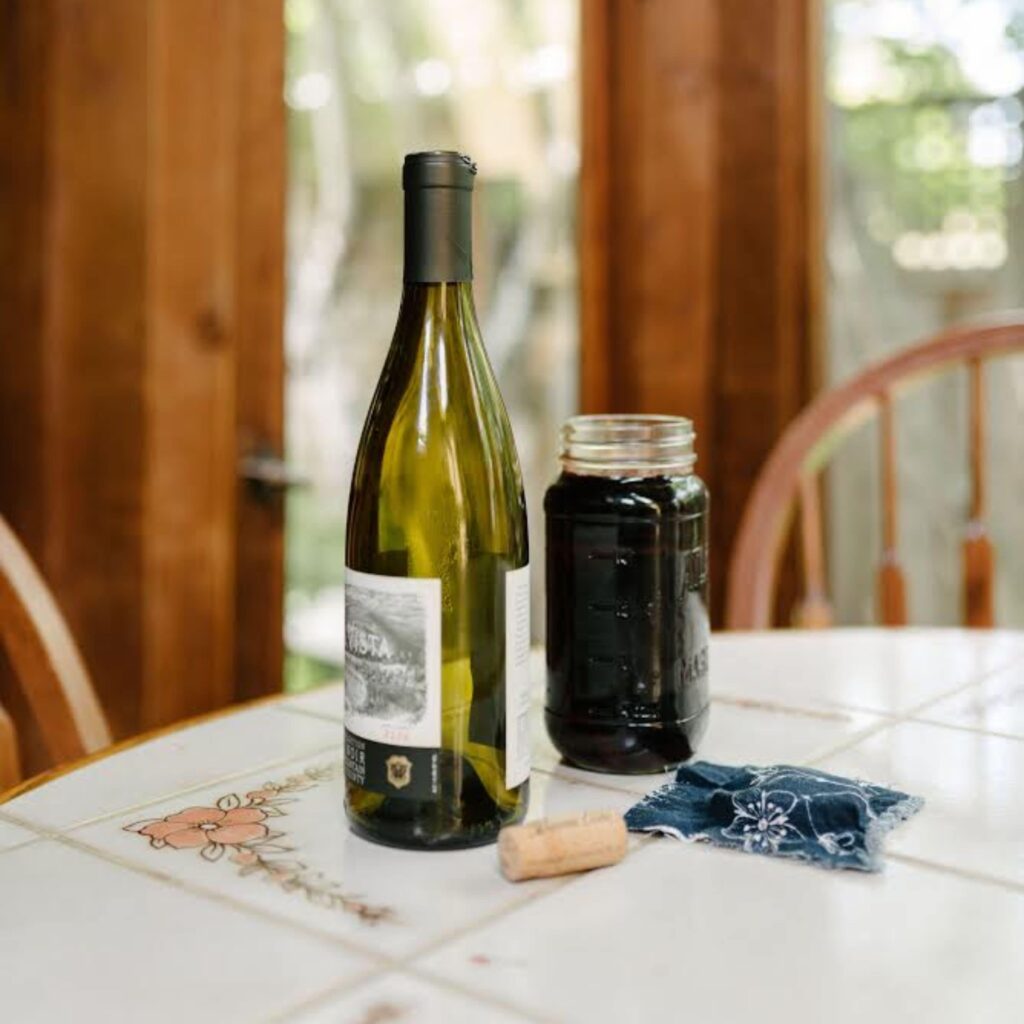
what is an organic alcohol?
An organic alcohol is free from chemical pesticides and synthetic fertilizers. For alcohol to have organic certification, it must adhere to strict standards set by the government and the food industry.
In order to achieve the certified organic label, products must contain at least 95 percent organically produced ingredients. They must also use production methods that don’t give off pollution residues, including pesticides, fertilizers, and chemicals that can increase the risk of cancer and other health risks.
While looking for an organic certification is a good idea, it’s not the only thing to look at: You should also look into each brand’s sustainability efforts and how they’re implementing them.
gzw approved sustainable alcohol brands
I’ve rounded up a list of sustainable alcohol brands that get the Going Zero Waste seal of approval. All these brands make alcohol that tastes great and reduces the impact on the planet.
I’ve gone ahead and highlighted some of my favorite features of each brand, but it isn’t an exhaustive list. Be sure to check out their websites for more information.
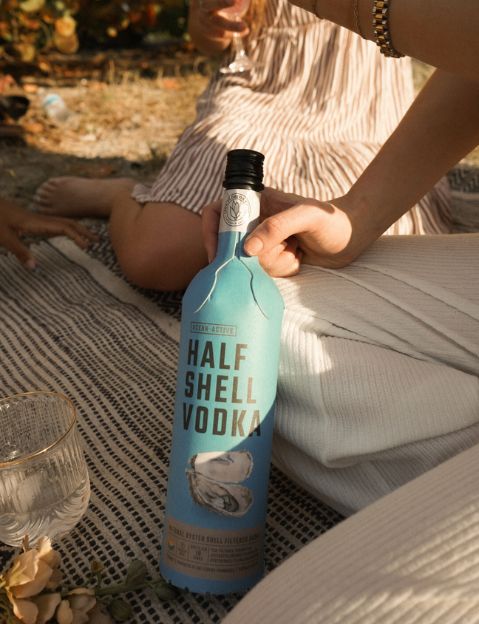
1. half shell vodka
- First spirit in the U.S. to be sold in 94% recycled paperboard bottle which reduces carbon footprint up to 6 times compared to glass bottles
- Gluten-free
- Crafted from 100% American corn + filtered through activated coconut carbon + oyster shells
- Sip for Sustainability event in April where every bottle of their vodka sold from participating liquor stores will contribute towards planting a tree within Longleaf Pine ecosystem
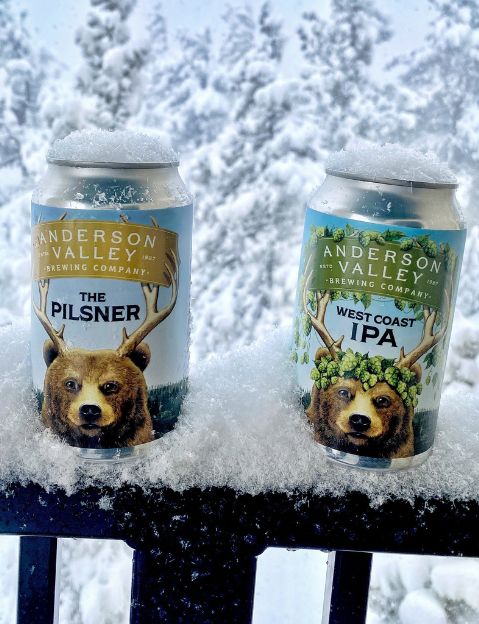
2. anderson valley brewing company
- Beer brewing company
- Solar powered brewery
- Self-contained water system that returns 100% of waste water back to their property
- Nitrogen generator to reduce CO2 usage by up to 80%
- Spent grains and yeast repurposed to feed local cattle
- 100% plastic-free packaging
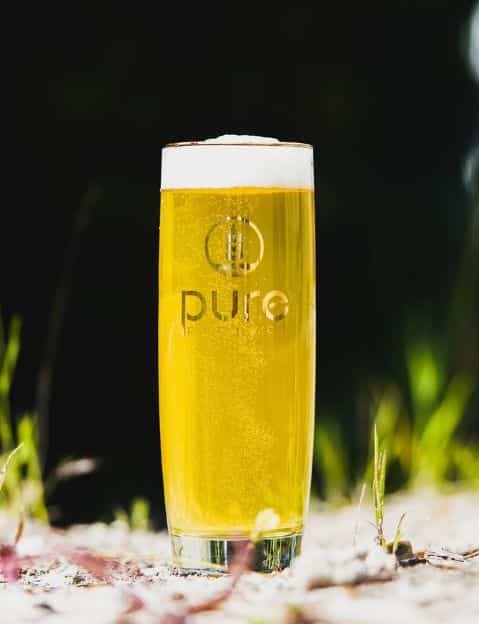
3. pure project brewing
- Beer brewing company
- Uses local California grown dry farmed, no-til and organic grain in their beer
- Implement various waste reduction methods such as eliminating plastic snap packs for to go beer
- 1% for the planet member
- Climate neutral certified
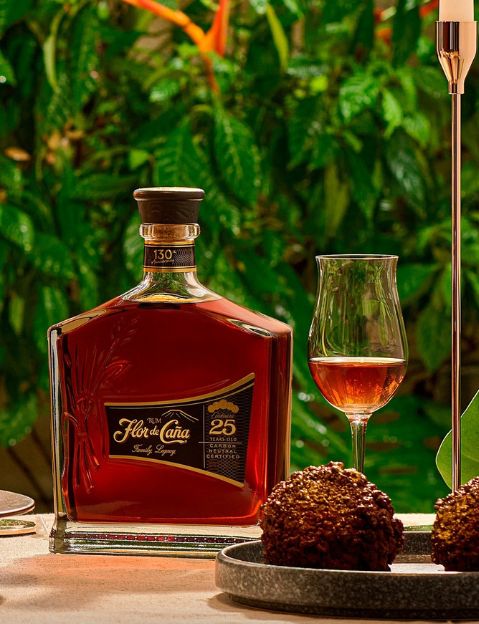
4. flor de caña
- Sustainably produced rum
- 0g of sugar + gluten free
- Distilled with 100% renewable energy
- CO2 emissions during fermentation are captured + recycled
- Carbon Neutral
- Fair Trade certified
- One Tree Planted partner
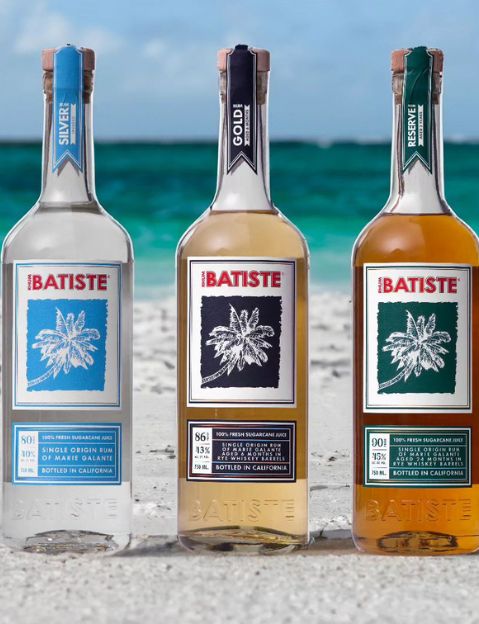
5. batiste rum
- Sustainably produced rum
- Non-plow sugarcane planting + annual harvest without burn or plow
- Recycle distillery waste used as fertilizer
- 2.5mgw solar farm for auxiliary power
- Boiler runs on crushed cane stalk
- Glass from 100% recycled glass cullet
- Cartons/labels from recycled carbon and cotton
- Third party verified carbon negative supply chain
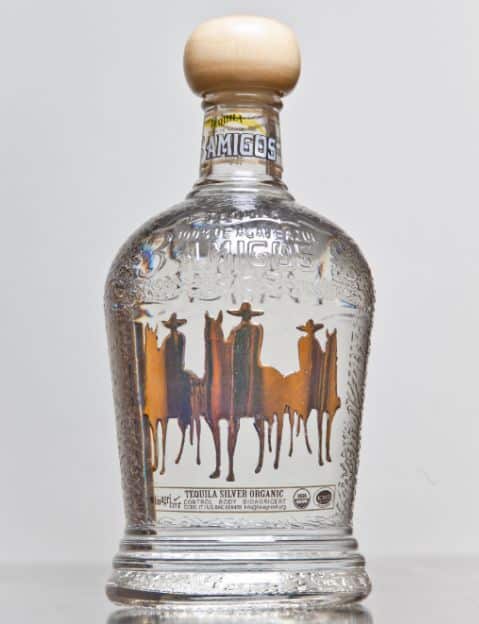
6. 3 amigos tequila
- Organic blanco tequila
- Made with 100% blue agave in the highlands of Jalisco
- Certified organic and kosher
- Only distilled twice rather than three times
- Additive-free
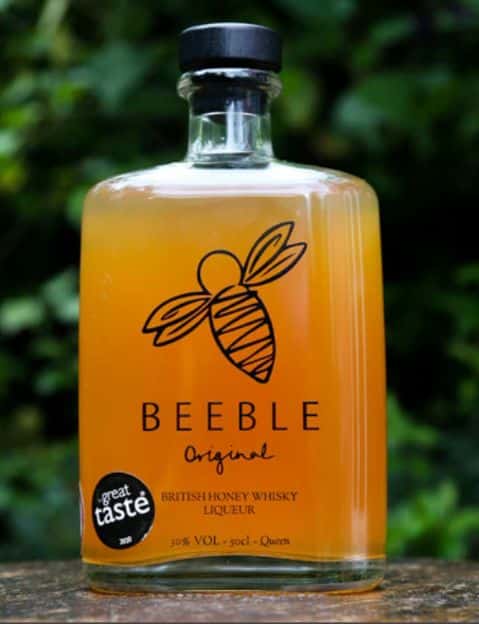
7. beeble
- Honey spirits
- Europe-based
- Naturally sweet
- Local, ethical + sustainably sourced honey
- B Corp certified
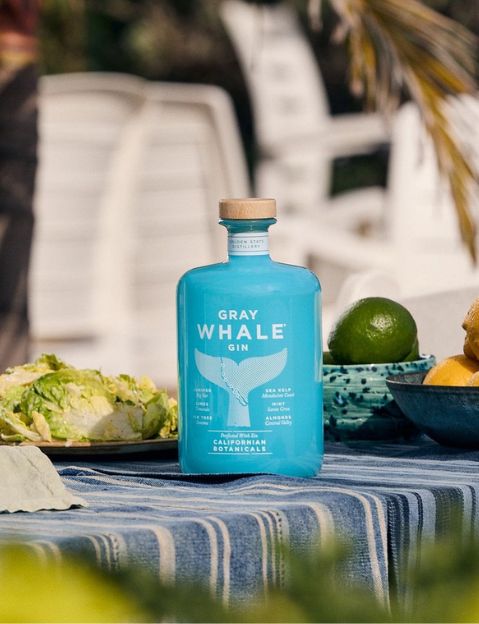
8. gray whale gin
- Sustainably produced gin
- Locally sourced or wild foraged ingredients along the migratory path of the gray whale
- Designed with organic paint + a biodegradable cork
- Oceana partner to protect California wildlife
- 1% For The Planet member
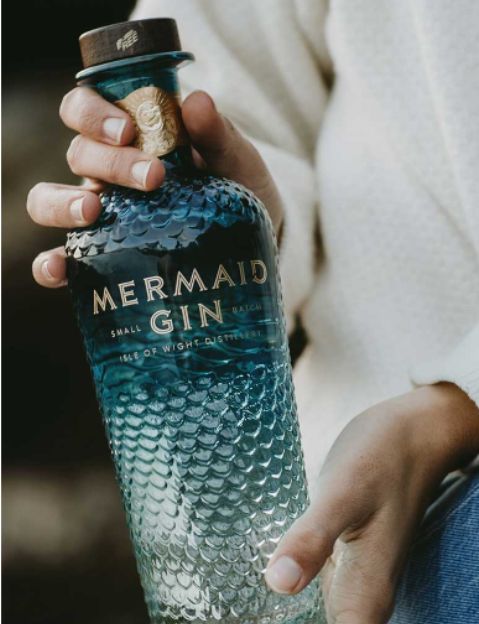
9. mermaid gin
- Sustainably produced gin
- Ten ethically sourced botanicals
- Hand-crafted on the Isle of Wight, England
- B Corp certified
- Plastic-free packaging
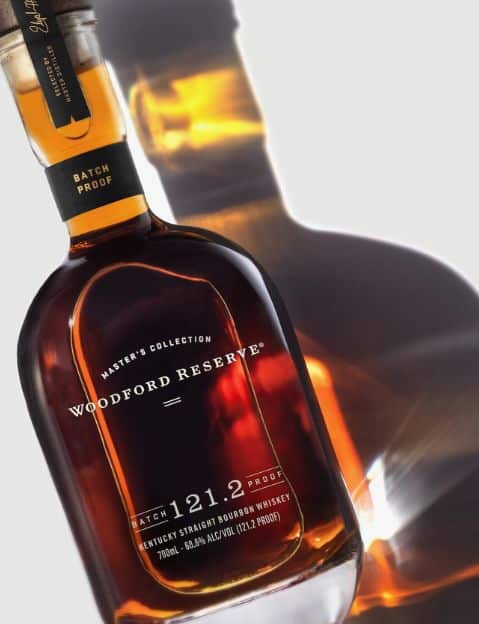
10. woodford reserve
- Sustainably produced whisky
- Grain recipe of 72% corn, 18% rye + 10% malted barley
- 98% of waste material recycled, across all operations
- 10 acres of land on the Woodford Reserve property dedicated to native grass restoration
- 97% of food scraps are composted on the Woodford Reserve property
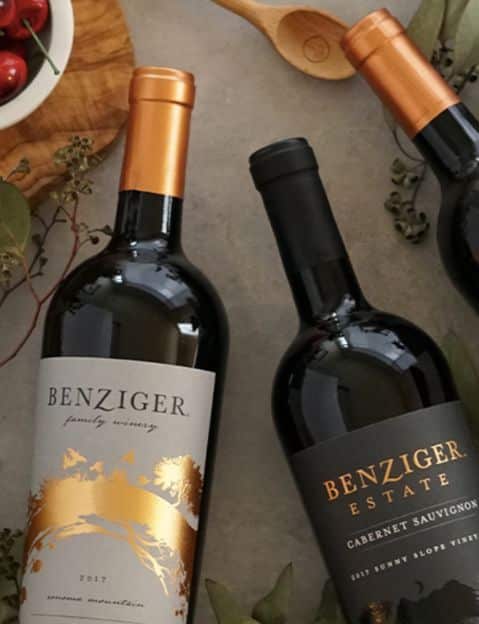
11. benziger wines
- Sustainably produced wine
- All wines have third-party certification of green farming practices: Sustainable, organic and biodynamic certifications
- Sheep, cattle, insectary, birds + gardens play a role in biodynamic farming
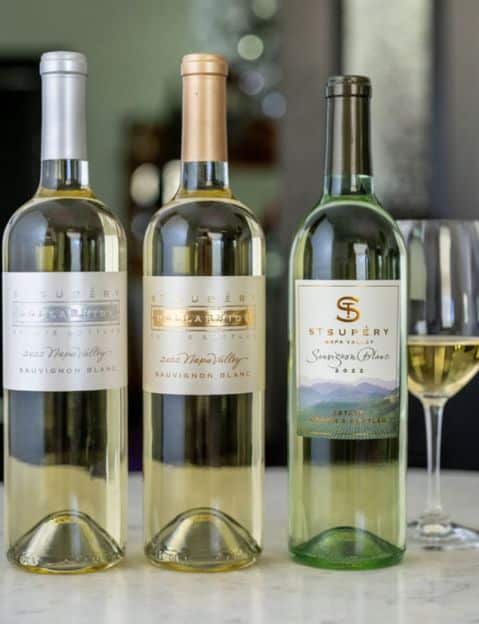
12. st. supery
- Sustainably produced wine
- Plants cover crops between vine rows to attract pollinators, discourage weeds, promote soil health + limit erosion
- Diverse collection of flora and fauna including ducks, geese, etc.
- Solar arrays offset 94% of the winery’s energy bill
- Water usage has reduced by 50% in the last 5 years + all process water is recycled
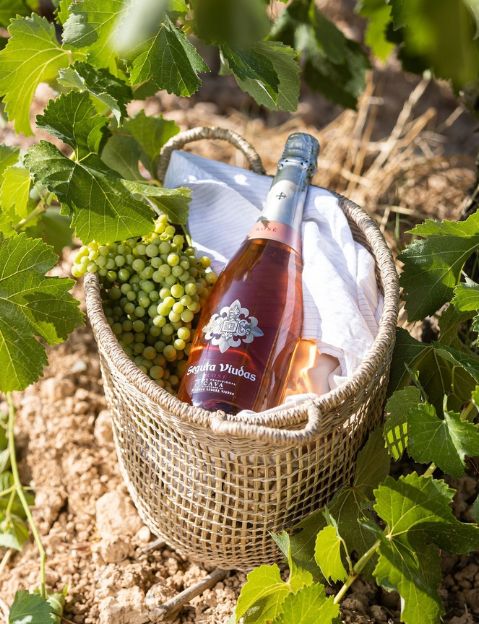
13. segura viudas
- Sustainably produced wine
- 800 year old heritage brand
- Uses grape varieties which are indigenous to the region
- Biodiverse farming methods that protect the ecosystem
- Certified as a Winery for Climate Protection
- Biosphere commitment to sustainable tourism
faqs
how do you make a sustainable cocktail?
You can make a sustainable cocktail by using up the ingredients you have on hand, avoiding single-use plastic straws, and finding creative ways to use up less than peak produce. Cocktails offer a unique opportunity to turn some less than peak fruits for muddling, simply syrups, and infusions. Using any of the sustainable alcohol brands listed above in your cocktails also helps!
Here are a few of my favorite cocktails I make for parties and get-togethers.
half shell vodka extra dirty martini
I made this for a friend’s happy hour before heading to the theater, and as the signature cocktail for my murder mystery birthday party!
Ingredients:
- 6 ounces of Half Shell Vodka
- 1/2 ounce dry Vermouth
- 1 ounce green olive juice brine
- 2-3 large jalapeño stuffed green olives
- ice
Instructions:
- Add ice cubes and cold water to a martini glass to chill glass.
- Add vodka, vermouth and olive juice into a martini shaker, add ice and shake to chill.
- Drain water from martini glass and strain martini from the shaker into the glass.
- Add olives for garnish and serve.
the prom queen (a twist on a french 75)
I made this for my friend’s Prom Themed birthday party and we called it the prom queen.
Ingredients for the cocktail:
- 1 ounce gin
- 1/2 ounce lime juice, freshly squeezed
- 1/2 ounce strawberry basil simple syrup (recipe below)
- 3 ounces sparkling wine (I used Segura Viudas Cava Brut Rose)
- Garnish: strawberry or lime twist
Instructions for the cocktail:
- Add ice to a pitcher, the cocktail ingredients, then pour in the syrup.
- Stir with a spoon, garnish and enjoy!
Ingredients for the simple syrup:
- The tops from a box of strawberries
- The juice of a lime and it’s rind
- Handful of basil stems
- ½ cup of water
- ½ cup of sugar
- ¼ teaspoon of cayenne and black pepper if you’re feeling spicy
Instructions for the simple syrup:
- Combine the water, sugar, strawberry tops, lime rind, and cayenne pepper and black pepper in a pot and bring to a simmer so the sugar dissolves.
- Reduce the heat and simmer for about 10 minutes.
- Add in the basil stems and turn off the heat.
- Strain the infused simple syrup and add in the lime juice.
Which of these sustainable alcohol brands would you give a try? Let me know in the comments!

